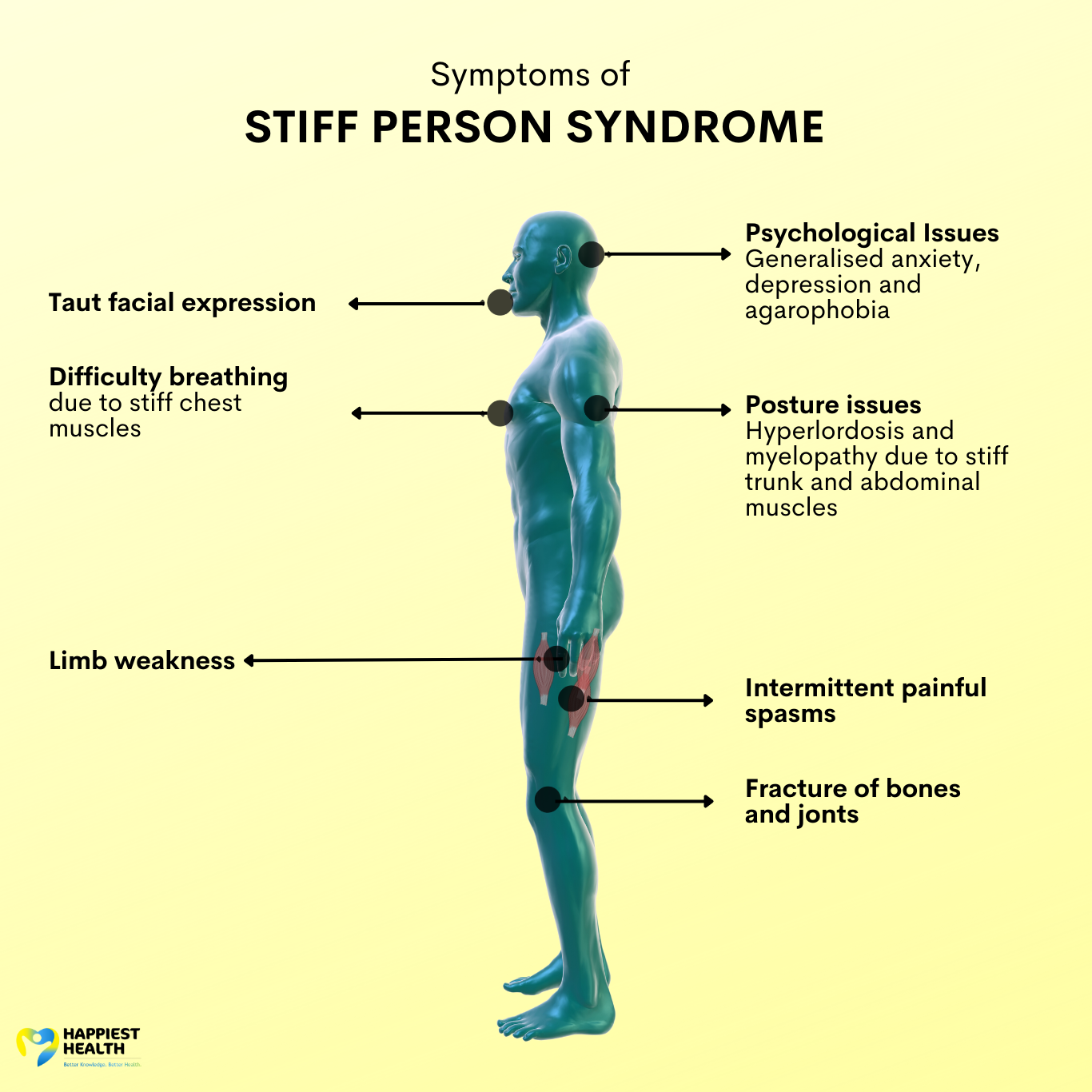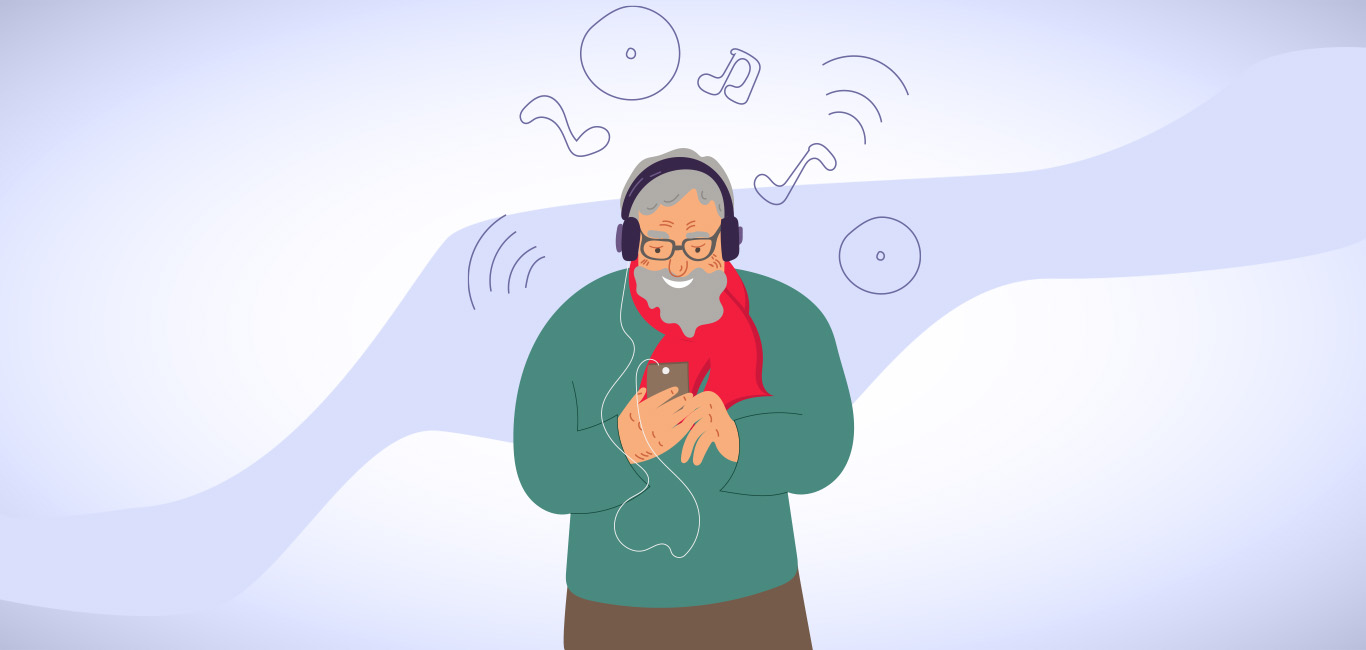This month Celine Dion, singer of the iconic song My heart will go on, from the movie Titanic came out with a new album. This was the first public moment for Dion since December, who had to put her career on hold due to stiff person syndrome (SPS), a rare neurological condition.
“[SPS] affects every aspect of my life, sometimes causing difficulties when I walk and not allowing me to use my vocal cords to sing the way I’m used to,” said the 55-year-old singer in a video posted on Instagram when she revealed her condition.
How rare is SPS
SPS is such a rare condition that even some neurologists are unaware of it, as it turned out in Jomana Houssari’s case.
Persistent stiffness in her body led the 30-year-old Florida resident to visit the hospital frequently. Unfortunately, she was misdiagnosed and received therapy for another neurological condition. When her condition did not improve even after a year, she began researching and looking for answers. She then stumbled upon SPS, and the symptoms matched.
Houssari asked another neurologist if she could be tested for SPS. She was taken aback by the doctor’s response: he was unaware of such a condition! According to a study, one in a million are known to be affected by this condition.
Vino Illesinghe, 56, from Australia, all along thought burnout was the culprit behind her persistent fatigue. “[My condition] progressively got worse, and doctors were baffled. Wrong diagnosis and wrong treatments made things worse,” she says.
After a seven-year-long tussle, she was finally diagnosed with SPS in 2017. “Looking back, I can see that I had a milder version of the symptoms most of my life,” says Illesinghe, who, after years in the wheelchair, is walking again.
Walking through the symptoms
As Dion’s recent video clip depicts, the hallmarks of this rare autoimmune neurological condition, like extreme muscle stiffness, rigidity, and spasms, make daily activities a challenge.
“The defining symptom of SPS is crippled or involuntary movement all over the body, and spasms called myoclonic jerks,” says Dr Avinash Kumar Addoju, neurologist, Sri Universal Neuro Centre and Kamineni Hospitals, Hyderabad. Myoclonic jerks are rapid, sharp uncontrollable spasms.
Loud noises, touch, cold temperatures or stressful events can trigger the spasms. Muscle spasms in the limbs affect walking and steadiness. When it is the trunk muscles, it leads to shortness of breath due to stiff chest muscles, as Houssari had experienced. Over time hyperlordosis (abnormally curved spine) or myelopathy (spine compression) can lead to abnormal posture and arrested movements, as seen in Illesinghe’s case.
In advanced stages symptoms such as blurred vision, speech difficulty, and lack of coordination are affected. In rare cases the condition can cause difficulties in bowel movements.

Stiffed by the immune system
Researchers are still learning on what causes SPS and some studies show that it is an autoimmune condition. The immune system reacts against GAD, a protein that makes GABA, a neurotransmitter that regulates muscle movement and tone.
The immune system generates antibodies to destroy or alter the activity of GAD (glutamic acid decarboxylase), leading to stiffness, rigidity or spasms. Dr Addoju says, “80 per cent of people who have SPS have very high levels of GAD antibodies,” adding, “In rare cases, another protein, amphiphysin, that communicates between neurons, causes the symptoms.”
Discovery by diagnosis
An accurate diagnosis can be challenging due to the overlap of symptoms with Parkinson’s, Guillian Barre syndrome, multiple sclerosis, and fibromyalgia.
Dr Addoju says that one differentiating symptom of SPS from Parkinson’s could be the age of onset, as the latter commonly affects people after the age of 60.
Currently, blood tests and scans help in identifying the condition. Dr Addoju lists them:
- A blood and cerebrospinal fluid test to check the GAD-antibody levels
- Electromyography to evaluate the nerve and muscle function
- Scans like MRI, and CT-Scan, help eliminate any other health conditions
Immune therapies are the way to move
Muscle relaxants help manage muscle stiffness and movement.
Dr Addoju says repeated immune therapy, to suppress or modify the immune system, is the best way to manage the condition.
- IVIg injections neutralise the immune reaction due to the GAD antibodies. Illesinghe and Houssari are undergoing regular IVIg coupled with immune suppressors to manage their condition.
- Plasmapheresis (removing active antibodies from the blood) if the person doesn’t respond to IVIg.
- Finally, oral immune suppressors are prescribed to manage the condition.
Where the lacunae lie
Dion’s announcement has sparked a wave of awareness of an otherwise little-known condition.
Houssari and Illesinghe’s stories resonate with the struggle to find the correct diagnosis.
Illesighe says, “It is an invisible illness that many do not know about. The word’ stiff person’ sounds weird, and the fact that it is a ‘syndrome’ is misleading.”
“People look at me and see a normal 30-year-old, but they have no idea what I go through daily. So I put on a brave face and smile ’cause, at the end of the day, it could be worse,” says Houssari wistfully.
Their life stories illustrate the courageous battles they fight. Meanwhile, research must pick up pace in understanding and finding curative solutions for the condition.
Read more: Muscle meltdown: the reality of spinal muscular atrophy
Read more: The fault in our genes: understanding adrenoleukodystrophy
















4 Responses
I have Stiff Person Syndrome as well. I bounced around from my family doctor, to an orthopedist, to a chiropractor, and being a woman I was told it was all in my head (so I saw a psychologist). I needed to lose weight (so I joined a weight-loss program – lost 45 pounds and kept getting worse). I had to learn to relax (being the main caregiver to three young children at home, and one with special needs). I did everything these doctors and specialists asked me to do and my condition kept getting worse. Ended up being referred to a pain management clinic from the orthopedist, when all I could do wasn’t having any effect. The pain management doctor did a nerve ablation after all the testing to find the correct nerves. The numbing pain worked but once the ablation was done – I experienced unbelievable excruciating pain. The little dampening effect my nerves had on the muscles that were spasming, went out of control. I was screaming in agony when the anesthetic wore off as I couldn’t control the spasms in my lower back and it was triggering greater leg stiffness and weakness. I went from unsteady walking due to pain to being unable to walk without ambulatory assistance. I could not stand for longer than 5 minutes. Since that treatment had the opposite effect and I still had the rib cage tightening – they referred me to a neurologist. Within minutes my neurologist KNEW what I had. The only piece of the puzzle left was getting blood work done since I had already had various MRIs and x-rays that showed nothing. It was also about 7 years for me to go through that journey. It was very frustrating to be told as a woman that it’s all psychosomatic and it took having to take my husband with me to get anywhere. They would ask him if he saw any differences, if HE felt that I was having trouble and to explain his concerns about me. I’m glad you’re bringing awareness to this but most women really get blown off. It was towards the end of my 7th year that I decided to take my husband to my doctor appointments because I was being dismissed and I felt ignored by the medical community simply advocating for myself and begging for tests.
Dear Laura,
Thank you for writing to us, and appreciate your courage to share your journey with stiff person syndrome with us.
We are indeed pained to note the struggles and challenges you faced before you got the diagnosis, which I hope is helping you manage the symptoms.
In our endeavour as a knowledge platform, we strive and leave no stone unturned to bring awareness about various neurological conditions; the SPS story is one such attempt.
Feel free to write to us if you would like to be featured in a story.
We wish you all the very best.
Hi I have the same diagnosis. And my story is a journey similar to theirs. I was diagnosed in 2018. But never treated until I fell so ill that I had to quit medical school. My neurologist who diagnosed me still refused to treat me and left me for months bedridden and unable to move with 40 tremors daily to the point that I couldn’t even eat or at times speak because any movement caused worsening tremors. I would like to share my story if you would like to reach out. Thank you! And may God soon help us all find a cure.
Dear Helga,
Thank you for writing to us.
We are deeply sorry and pained to note the difficulties you have been through; the neurologist’s response is indeed concerning.
We hope you are receiving the required medical help now.
It is our endeavour to bring to light several unknown conditions and spread awareness, and we hope research will catch up soon on SPS.
We appreciate your courage and willingness to share your story with us.
Our writer will get in touch with you soon.
Wishing you all the very best
Susheela